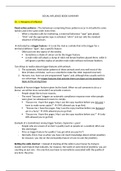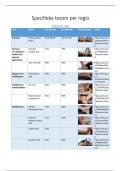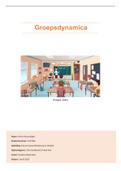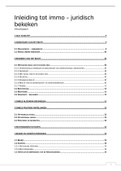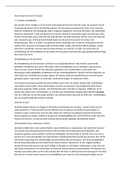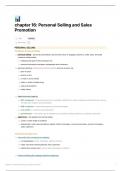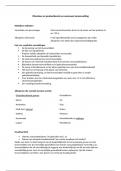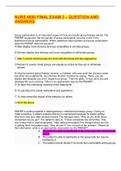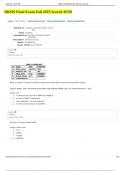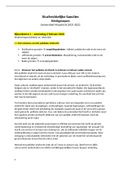Samenvatting
Social influence book summary (2020/2021)
- Instelling
- Rijksuniversiteit Groningen (RuG)
In this document, I summarised the complete book for the course "Social Influence". This book is used in the 2020/2021 academic year. Within the summary, I also included the handy examples that were given in the book in order to better illustrate the covered material (I saw that other summaries did...
[Meer zien]
